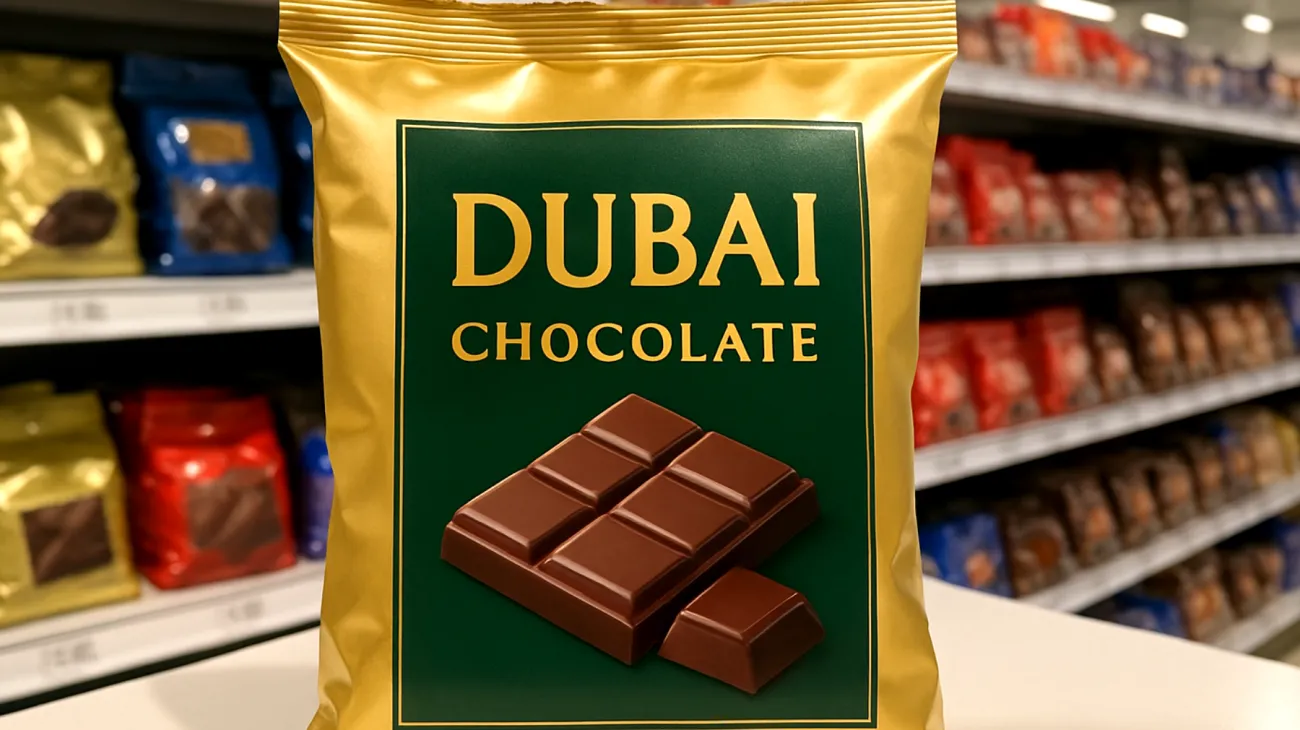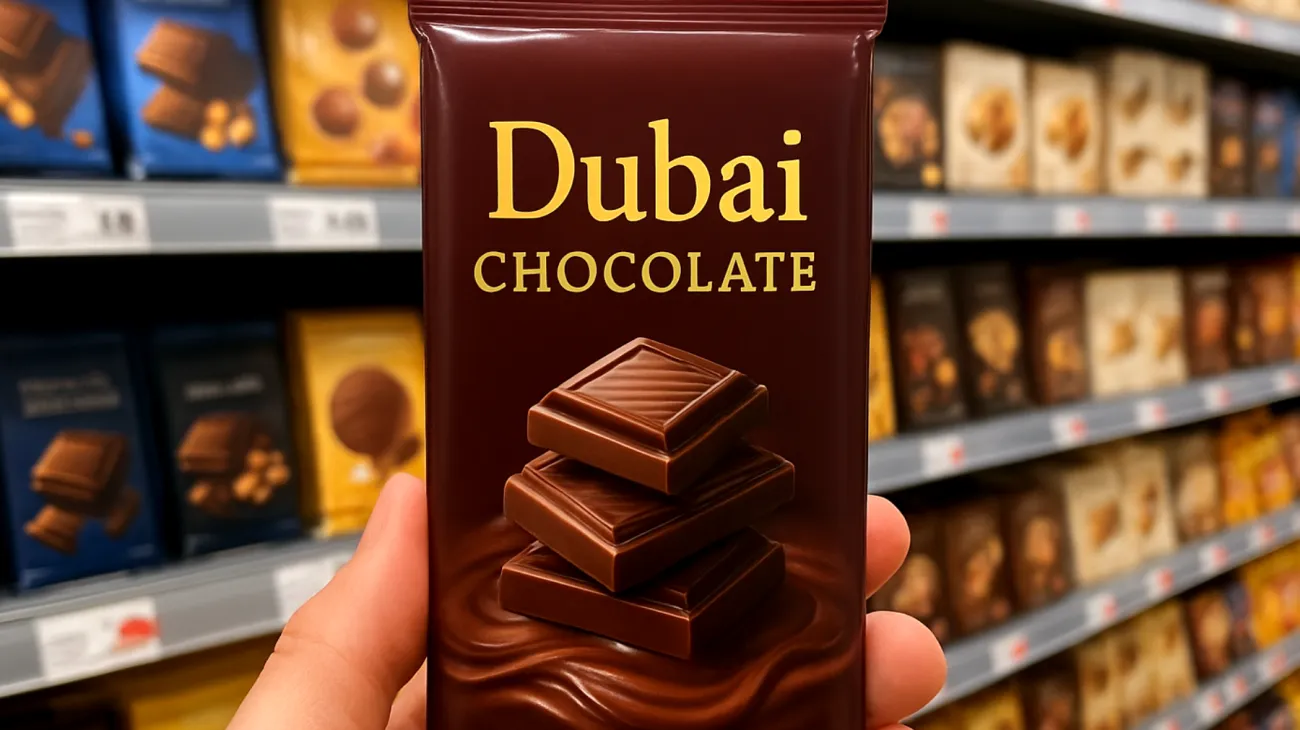The surge in popularity of viral chocolate treats has brought unexpected challenges to UAE consumers navigating supermarket aisles. While promotional tags and discount stickers catch our attention, they often overshadow critical certification marks and quality indicators that determine whether we’re purchasing authentic, safe products or potentially misleading imitations, particularly amidst the current rise of popular chocolate products like pistachio-filled Dubai-style chocolate bars.
As consumer protection organizations and analysts observe, the excitement surrounding trending confectionery items creates perfect conditions for oversight when evaluating product authenticity. This phenomenon particularly affects specialty chocolate products that have gained social media fame on platforms like TikTok, where consumer demand far exceeds supply, leading to a marketplace flooded with varying quality alternatives.
The Hidden Language of Product Certification
Every legitimate food product in the UAE carries a complex system of symbols designed to protect consumers, yet these crucial markers become virtually invisible when positioned alongside eye-catching promotional materials. Emirates Authority for Standardisation and Metrology (ESMA) certification marks play a crucial role in consumer verification, alongside halal symbols and conformity labels that serve as essential quality indicators.
Understanding these symbols requires more than casual observation. Authentic certification marks feature specific design elements, unique registration numbers, and precise placement as dictated by regulatory requirements. However, when consumers focus primarily on discounted pricing, they inadvertently skip the verification process that ensures product legitimacy.
Decoding Quality Indicators Beyond Price Tags
Genuine specialty chocolate products display multiple layers of quality assurance through carefully regulated labeling systems. Smart shoppers should look for regulatory compliance symbols indicating conformity with UAE food safety standards, import certification stamps demonstrating proper customs clearance, and ingredient transparency labels disclosing contents and allergens as required by local policies.
Food safety experts emphasize that promotional pricing should never overshadow these fundamental quality markers. When legitimate products undergo price reductions, their certification remains intact and clearly visible, while questionable alternatives often rely on pricing strategies to distract from missing or fraudulent documentation. Additionally, manufacturing dates and expiration codes enable consumers to check product freshness and traceability.
Red Flags in Promotional Product Displays
Consumer protection investigations reveal common patterns among problematic products masquerading as premium specialty items. Oversized promotional stickers strategically placed to obscure required regulatory marks represent immediate warning signs, a practice explicitly discouraged by UAE retail regulations. Legitimate retailers maintain transparency by ensuring all regulatory symbols remain visible regardless of promotional activities.
Another concerning trend involves packaging that imitates the layout or color scheme of legitimate certification marks while lacking genuine identifiers. These deceptive practices exploit consumer unfamiliarity with proper certification appearance, particularly during high-traffic promotional periods when purchasing decisions happen rapidly. Recognizing ESMA certification marks, halal symbols, and conformity labels becomes essential for making informed purchasing decisions.

Verification Techniques for Smart Shoppers
Developing systematic evaluation habits protects consumers from marketing manipulation while ensuring product authenticity. Professional buyers and food inspectors recommend implementing structured assessment approaches that prioritize certification verification before price consideration.
Start by identifying the manufacturer’s country of origin through official import stamps rather than decorative flags or cultural imagery. Authentic imported specialty foods display clear customs documentation alongside recognizable international quality certifications. Cross-reference these marks with online databases when available for additional verification.
Examine ingredient lists for consistency with expected product compositions. Genuine specialty chocolate bars typically list real pistachios or nuts, cocoa butter, and recognizable dairy components, while imitations often contain substitute ingredients, unspecified oils, or vague terminology designed to obscure actual contents.
The Economics of Authentic vs. Imitation Products
Understanding pricing patterns helps consumers distinguish between legitimate sales and potentially fraudulent offerings. Authentic premium chocolate products, particularly those driven by viral consumer demand such as Dubai bars or artisanal pistachio-filled products, maintain relatively high and stable pricing due to elevated ingredient costs and limited supply. Deep or abrupt discounts may signal overstock, impending expiration, or lower product quality.
Consumer protection data and industry reports confirm that authentic specialty foods rarely undergo extreme price reductions except for short-term logistical reasons. When genuine products do receive promotional pricing, retailers provide clear explanations such as approaching expiration dates, seasonal clearances, or bulk purchasing advantages rather than perpetual or unjustifiably steep markdowns.
Building Long-term Consumer Awareness
Developing expertise in label interpretation requires ongoing education about evolving certification standards and emerging fraud patterns. UAE’s consumer protection agencies regularly update their guidance materials to reflect new regulatory requirements and identification techniques for authentic products, encouraging consumers to stay informed and vigilant.
Smart shopping extends beyond individual purchases to encompass broader marketplace awareness. By reporting suspicious products and sharing verification experiences with fellow consumers, UAE residents contribute to maintaining high retail standards that benefit the entire community. The responsibility for product authenticity extends throughout the supply chain from manufacturers to retailers and regulatory enforcement bodies, making consumer vigilance regarding certification marks and proper labeling a fundamental defense against misleading chocolate products in our local marketplace.
Table of Contents

